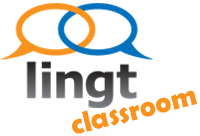|
Detailed Background and Educational Philosophy
Summary | Educational
Experience | Educational Philosophy
|
Ed. Phil. Summary
(Or: A Recipe for Better Schools)
|
- People who want to learn will. Those who don't won't. It's
that simple.
- Coercion creates aversion. The first step in any enlightened
approach to education must therefore be to replace coercion
with student choice and agency.
- The second step is to provide excellent resources and a vibrant
setting for learning, ideally including age mixing, peer teaching,
mentoring, and modern online learning.
- The fourth step is to constantly re-examine the evolving model
checked against the questions of: (A) what is useful to learn,
and (B) can the current efforts be improved upon? In all this,
it is vital to understand that each person is unique in interests,
abilities, learning styles, and the path in life which suits
them. Thus one size never fits all. This is yet another argument
for putting learners into the driver's seat of their own education.
- Democracy, as well as maturity, require practice. If we want
to live in a world where our choices and voices matter, our
children cannot start practicing democracy early enough. This
combines perfectly with the already mentioned need for student
choice and agency as a much more motivating stimulant for learning
than external coercion could ever be. Also, as living democracy
is often not perfectly possible at home, and as children are
often reluctant to take steps towards independence in the presence
of their parents, schools are the perfect place to provide this
opportunity.
|
1. My Educational Experience
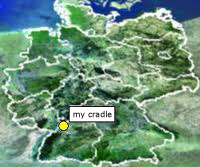 I
have experienced a variety of educational models both as a student
and staff. From this I derive a preference for democratic education
and treating students as intelligent, dignified, and true persons, deserving
their freedom and their chance to be responsible for themselves. After
day one of kindergarten, I pleaded with my parents never to send me
to this stultifying place again, and thus I bought myself a few more
years of childhood, of roaming free and learning about nature, of play
and growing up on my own terms. Nevertheless, I tested so well on an
aptitude test that I was eventually sent to primary school a year early.
The pendulum now swung to the other side. I
have experienced a variety of educational models both as a student
and staff. From this I derive a preference for democratic education
and treating students as intelligent, dignified, and true persons, deserving
their freedom and their chance to be responsible for themselves. After
day one of kindergarten, I pleaded with my parents never to send me
to this stultifying place again, and thus I bought myself a few more
years of childhood, of roaming free and learning about nature, of play
and growing up on my own terms. Nevertheless, I tested so well on an
aptitude test that I was eventually sent to primary school a year early.
The pendulum now swung to the other side.
My primary and secondary schools in Germany followed
the traditional coercive school model which has governed public
and most private schools ever since schools were first conceived. For
being coercive schools (with a top-down curriculum and teachers in a
dictatorial role), I found they provided me nevertheless with a fairly
good education, chiefly for two reasons: (1) I 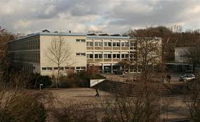 was
motivated because I came from an intellectual and artistic household
and decided early in life that I wanted to go on to higher education
in pursuit of my naturalist interests; and (2) the way tracking was
done allowed for a good degree of differentiation (matching students
much better with subject matter and teachers than is usually the case
in American public schools nowadays). Nevertheless, I detested the coercion
which often hemmed me in more than it provided me with resources. Many
of my fellow students, who were less motivated than I, did less well
in school and hated it more. My own dissatisfaction with the traditional
model made A.S. Neill a veritable saint in my adolescent years and his
book "Summerhill. A Radical Approach to Child Rearing" my
personal bible. was
motivated because I came from an intellectual and artistic household
and decided early in life that I wanted to go on to higher education
in pursuit of my naturalist interests; and (2) the way tracking was
done allowed for a good degree of differentiation (matching students
much better with subject matter and teachers than is usually the case
in American public schools nowadays). Nevertheless, I detested the coercion
which often hemmed me in more than it provided me with resources. Many
of my fellow students, who were less motivated than I, did less well
in school and hated it more. My own dissatisfaction with the traditional
model made A.S. Neill a veritable saint in my adolescent years and his
book "Summerhill. A Radical Approach to Child Rearing" my
personal bible.
 After
high school, university was a true liberation. Back then (before
Bologna), German universities retained much of After
high school, university was a true liberation. Back then (before
Bologna), German universities retained much of  the
original approach to higher education, one where the student drove his
own studies and eventually asked to show his stuff to the professors
(defend a thesis) and, when successful, be accepted into their ranks
of titled scholars. As the only student of my "class", I managed
to finish the equivalent of senior college in a mere 4 semesters instead
of the usual 5 or 6 (and with a very good grade at that) while somehow
also finding time to write a children's book. the
original approach to higher education, one where the student drove his
own studies and eventually asked to show his stuff to the professors
(defend a thesis) and, when successful, be accepted into their ranks
of titled scholars. As the only student of my "class", I managed
to finish the equivalent of senior college in a mere 4 semesters instead
of the usual 5 or 6 (and with a very good grade at that) while somehow
also finding time to write a children's book.
This was all thanks to my high level of intrinsic motivation and the
liberties afforded in this original university model: attendance at
lectures was voluntary; to prepare for your comprehensive exams, you
had the option of 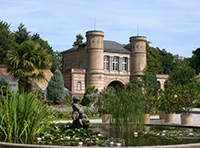 studying
a recommended textbook or two instead of attending lectures (or you
could do both); and the required practical courses, labs, and excursions
were sufficiently interesting, relevant, profound, and light on busywork
as not to be a burden. To date, this is the best school model which
I have experienced in the role of a student. The grade on my bachelor
equivalent came entirely from the four final oral examinations (similar
to a thesis defense), so this grade actually reflected my state of learning
at the time of graduation instead of points earned on long forgotten
content in long forgotten exams — the way it unfortunately is
with most schools (even universities) nowadays. studying
a recommended textbook or two instead of attending lectures (or you
could do both); and the required practical courses, labs, and excursions
were sufficiently interesting, relevant, profound, and light on busywork
as not to be a burden. To date, this is the best school model which
I have experienced in the role of a student. The grade on my bachelor
equivalent came entirely from the four final oral examinations (similar
to a thesis defense), so this grade actually reflected my state of learning
at the time of graduation instead of points earned on long forgotten
content in long forgotten exams — the way it unfortunately is
with most schools (even universities) nowadays.
 After
this positive experience, I came to the US to attend graduate school.
It was a big step backward since, once again, I was forced to take often
meaningless (to me) courses peppered with strings of exams which were
given primarily for the purpose of accumulating credits. It was all
about After
this positive experience, I came to the US to attend graduate school.
It was a big step backward since, once again, I was forced to take often
meaningless (to me) courses peppered with strings of exams which were
given primarily for the purpose of accumulating credits. It was all
about 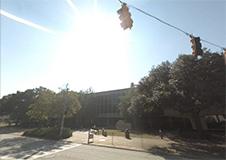 credits
and more credits. Who needs actual learning, right? The exams were all
multiple choice and shallow but demanding in terms of the sheer volume
of trivia which they required you to memorize. Any American student
in one of today's public high schools will be familiar with the concept.
At the same time, I was also appalled by what little my fellow students
had previously learned, understood, or retained from their prior schooling.
In contrast to my classes, however, my major advisor gave me free reign
on my research, and so I developed a brand new investigative technology
("Freeze Filtration") during my time as graduate student. credits
and more credits. Who needs actual learning, right? The exams were all
multiple choice and shallow but demanding in terms of the sheer volume
of trivia which they required you to memorize. Any American student
in one of today's public high schools will be familiar with the concept.
At the same time, I was also appalled by what little my fellow students
had previously learned, understood, or retained from their prior schooling.
In contrast to my classes, however, my major advisor gave me free reign
on my research, and so I developed a brand new investigative technology
("Freeze Filtration") during my time as graduate student.
In the topsy-turvy world we inhabit, this original research played
a big part in me leaving with only a master's degree rather than a Ph.D.
(Other factors involved being in the line of fire when faculty members
were gunning for my major advisor, coming across massive academic dishonesty,
and re-examining the direction my life was taking.) Doing a tried and
true, completely unoriginal study would have been much safer. Go figure!
Nevertheless, this experience once again showed me how much more can
be achieved when a learner has freedom than when he is confined in scripted
classes in a coercive setting. During this period, I also picked up
my computer skills and joined my first Andean band. Both self-taught
skill sets would serve me in later careers. My cartoon series also began
to take shape around this time. Two decades after this period, I went
back to school for my teacher certification only 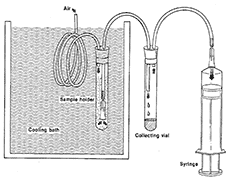 to
encounter the coercive, scripted system of busy work and credit gathering
again, except with a heavy dose of grade inflation added. Like all my
fellow graduates I regard most of our time there as having been wasted.
Now I have been working in conventional public schools (and one private
school) for the last few years, and – again – found myself
immersed in a culture of coercion and wasted potential. I am sad for
our students. We could do so much better by them, and I had thought
I might be able to make a difference. Sadly, I soon found out that when
you are teaching in conventional schools your hands are very much tied,
especially as a new teacher still on probation and when you don't have
administrative permission to do something different. I do as much as
possible in those settings to allow for genuine learning and growth,
but standards based education (especially "No Child Left Behind")
with its high stakes testing, mandatory curriculum, and lesson scripting
has poisoned the system over the years; and so I am now interested in
either finding or founding me a school of the Summerhill or Sudbury
Valley (SVS) model to work in, or something sufficiently similar, or
at least get enough of a free hand to let my students benefit from the
lessons taught by those educational models. to
encounter the coercive, scripted system of busy work and credit gathering
again, except with a heavy dose of grade inflation added. Like all my
fellow graduates I regard most of our time there as having been wasted.
Now I have been working in conventional public schools (and one private
school) for the last few years, and – again – found myself
immersed in a culture of coercion and wasted potential. I am sad for
our students. We could do so much better by them, and I had thought
I might be able to make a difference. Sadly, I soon found out that when
you are teaching in conventional schools your hands are very much tied,
especially as a new teacher still on probation and when you don't have
administrative permission to do something different. I do as much as
possible in those settings to allow for genuine learning and growth,
but standards based education (especially "No Child Left Behind")
with its high stakes testing, mandatory curriculum, and lesson scripting
has poisoned the system over the years; and so I am now interested in
either finding or founding me a school of the Summerhill or Sudbury
Valley (SVS) model to work in, or something sufficiently similar, or
at least get enough of a free hand to let my students benefit from the
lessons taught by those educational models.

2. My Educational Philosophy
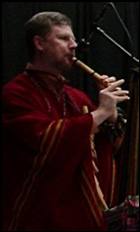 I
believe that children are natural learners and that their
primary task is to discover who they are and develop along their natural
inclinations and strengths. Left free, they typically do this with great
skill, drive, and aplomb. (As one example, just remember how you cracked
the code of your native language when you were little!) Children will
go through their growing years learning about the world and themselves
and others on their own steam if only we let them. As their elders,
we can provide valuable assistance, especially in broadening horizons,
providing alternative viewpoints and an elder's perspective, by modeling
how we do things, and by providing resources, but we should never warp
their path by imposing ourselves. For most of our children, their childhood
and full potential end the day they first hear the words: "Sit and listen!
Today's lesson is..." The 'one size fits all' drill which follows for
the rest of their school years flies in the face of human diversity.
It can only produce life hating robots. In the early industrial age,
when society needed armies of machine operators for its factories, this
may have served a purpose. In today's world in which life is much more
complicated and flexibility is a must, the world needs thinking, creative,
astute, dynamic, and decent people. I
believe that children are natural learners and that their
primary task is to discover who they are and develop along their natural
inclinations and strengths. Left free, they typically do this with great
skill, drive, and aplomb. (As one example, just remember how you cracked
the code of your native language when you were little!) Children will
go through their growing years learning about the world and themselves
and others on their own steam if only we let them. As their elders,
we can provide valuable assistance, especially in broadening horizons,
providing alternative viewpoints and an elder's perspective, by modeling
how we do things, and by providing resources, but we should never warp
their path by imposing ourselves. For most of our children, their childhood
and full potential end the day they first hear the words: "Sit and listen!
Today's lesson is..." The 'one size fits all' drill which follows for
the rest of their school years flies in the face of human diversity.
It can only produce life hating robots. In the early industrial age,
when society needed armies of machine operators for its factories, this
may have served a purpose. In today's world in which life is much more
complicated and flexibility is a must, the world needs thinking, creative,
astute, dynamic, and decent people.
|
Homework, yes or no?
In the SVS learning model, there are usually
no classes, so "homework" as an out-of-class extension
of studies assigned by an instructor does not even enter the picture.
In schools where courses are taught, a brief personal review later
in the day away from distractions has often shown to work wonders,
especially in a school setting which wastes most of the students'
time. However, a lot of conventional homework assigned every day
around the world is busywork resulting from inefficiency at school
and the system's need to produce grades. If the students are actually
learning well all day in school, homework becomes overkill. I
then would argue that hard working students and their parents
deserve the evening off.
|
Forcing our young to prepare for a barrage of mostly meaningless tests
in (to them) irrelevant subjects at whatever time the system deems to
be the right time only creates resistance, apathy, and a revulsion against
all learning (most especially against books at a time when literacy
is on the decline!). It stifles curiosity and self-motivation and retards
maturity. It also prevents the development of the skills needed in citizens
of a democracy, as this educational approach churns out obedient automatons
instead of critical thinkers prepared to challenge authority and engage
in debate based on facts and reason. Can we be 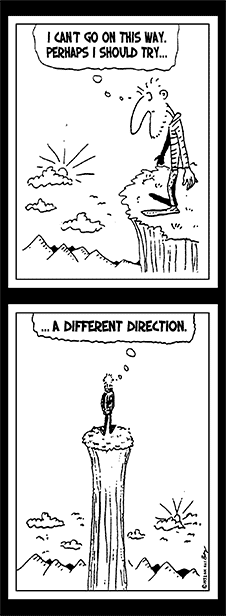 surprised
that many of the products of this coercive and nonsensical schooling
retreat from sense-making and an enlightened civilization into cults
of unreason? Even the purely academic aspect, the acquisition of academic
"content" and skills, suffers greatly under standards based
education (AKA test-driven pedagogy) because of the meaningless nature
of the mandated standard tests and the teaching to the test which teachers
are now forced to do if they wish to keep their jobs. This shallow teaching
and leaning leads to students who can regurgitate question-answer pairs
at test time but who have no idea of their significance or meaning.
These abused students often no longer even grasp the idea that their
should be a meaning. Our young are hardly being taught anymore
but rather drilled for meaningless tests and with ever sinking standards
in mind. The very fact that one size simply does not fit all but all
students must be counted as successes on the standardized tests in order
for schools and teachers to avoid draconian punitive measures causes
our vaunted educational standards to be lowered year after year in order
to pass as many students as possible. Demoralized as students and teachers
are in this derailed race to the bottom, too many students keep failing
even the lowered standards. So, next time there is an adjustment, the
standards get lowered even more. First we dumb down the mandated curriculum.
Then we dumb down our children to match it. Then we dumb down the curriculum
some more, and so the downward spiral continues. Facing budget cuts,
harsh and abstruse performance evaluations and unrealistic expectations,
regulations upon regulations, censorship, lack of materials (which teachers
then have to make to fill the gap), oversized classes, endless grading,
mounds of ancillary (and mostly pointless) paperwork, ever more elimination
of positions, and a public drum roll blaming them for all the worlds'
ills, teachers are or feel powerless to speak up against the nonsense,
not to mention too overworked to even find any time to do so. For example,
I worked 120 weekly hours in my first year whereas workers in the industrial
revolution when exploitation ran rampant only averaged 84!. All this
not only hurts students and society as a whole right now, but I believe
that conditions have become so bad I fully expect a massive teacher
shortage from attrition which will shock the nation's school systems
a few years from now. surprised
that many of the products of this coercive and nonsensical schooling
retreat from sense-making and an enlightened civilization into cults
of unreason? Even the purely academic aspect, the acquisition of academic
"content" and skills, suffers greatly under standards based
education (AKA test-driven pedagogy) because of the meaningless nature
of the mandated standard tests and the teaching to the test which teachers
are now forced to do if they wish to keep their jobs. This shallow teaching
and leaning leads to students who can regurgitate question-answer pairs
at test time but who have no idea of their significance or meaning.
These abused students often no longer even grasp the idea that their
should be a meaning. Our young are hardly being taught anymore
but rather drilled for meaningless tests and with ever sinking standards
in mind. The very fact that one size simply does not fit all but all
students must be counted as successes on the standardized tests in order
for schools and teachers to avoid draconian punitive measures causes
our vaunted educational standards to be lowered year after year in order
to pass as many students as possible. Demoralized as students and teachers
are in this derailed race to the bottom, too many students keep failing
even the lowered standards. So, next time there is an adjustment, the
standards get lowered even more. First we dumb down the mandated curriculum.
Then we dumb down our children to match it. Then we dumb down the curriculum
some more, and so the downward spiral continues. Facing budget cuts,
harsh and abstruse performance evaluations and unrealistic expectations,
regulations upon regulations, censorship, lack of materials (which teachers
then have to make to fill the gap), oversized classes, endless grading,
mounds of ancillary (and mostly pointless) paperwork, ever more elimination
of positions, and a public drum roll blaming them for all the worlds'
ills, teachers are or feel powerless to speak up against the nonsense,
not to mention too overworked to even find any time to do so. For example,
I worked 120 weekly hours in my first year whereas workers in the industrial
revolution when exploitation ran rampant only averaged 84!. All this
not only hurts students and society as a whole right now, but I believe
that conditions have become so bad I fully expect a massive teacher
shortage from attrition which will shock the nation's school systems
a few years from now.
I summarized my core educational philosophy at the beginning of this
section. Here it is again in a nutshell: People who want to learn
will. Those who don't won't. It's that simple. Coercion breeds aversion,
meaning that coerced students don't wish to learn. The first step in
any enlightened approach to education must therefore be to remove coercion.
The second step is to provide excellent resources and a vibrant setting
for learning, ideally including age mixing, peer teaching, and mentoring.
The fourth step is to constantly reexamine the evolving model checked
against the questions of: (A) what is useful to learn, and (B) can the
current efforts be improved upon?. In all this, it is vital to understand
that each person is unique in interests, abilities, learning styles,
and the path in life which suits them. Thus one size never fits all.
This is yet another argument for putting learners firmly into the driver's
seat of their own education. Last, not least, democracy, as well as
maturity, require practice. If we want to live in a world where our
choices and voices matter, our children cannot start practicing democracy
early enough. This combines perfectly with the already mentioned need
for student choice and agency as a much more motivating stimulant for
learning than external coercion could ever be. Also, as living democracy
is often not perfectly possible at home, and as children are often reluctant
to take steps towards independence in the presence of their parents,
schools are the perfect place to provide this opportunity. Thus I conclude
not only by faulting our public schools for the wrong turn they have
taken as a result of test-driven school reform but I also voice my support
for democratic school models like England's Summerhill and America's
Sudbury Valley School.
|
Curriculum, yes or no?
The question of what to use for a curriculum
or whether to even use one at all, is one where proponents of
different schools often part ways. Whole new school systems have
been created over schisms in curriculum. Holistic schools like
Waldorf and Montessori schools use a different, more whole-person
oriented, curriculum than public schools, and democratic schools
sometimes don't use one at all, unless letting children grow up
free can be called a curriculum (as indeed it might be). Most
independent schools are at least influenced by public school curricula,
and the public at large can't imagine school without those. Sadly,
public school curriculum designers have wreaked havoc with generations
of youngsters since schools became widespread some 150 years ago.
A public school curriculum is always imposed from above and establishes
a small selection of "courses" which leave out the lion's
share of what there is to learn in our world. A broader coverage
would require a lot more courses than anyone has time for. Then
these courses are filled with a lot of useless bulk until they
seem 'full enough'. The few good items in them are drowned in
all that extra fluff. As a result, students waste most of their
time in school and - realizing what is happening - succumb to
apathy, rebellion, or coping strategies like last minute cramming
and minimal participation, all of which prevent learning in a
situation which already offers little useful learning to begin
with. This kind of schooling steers many students onto life paths
not natural or suitable to them. It is better to throw the whole
curriculum away (the Sudbury approach), which - however - leaves
much learning up to happenstance. Perhaps we need not worry about
happenstance, since typically most academic, professional, and
political learning happens after high school anyway, but many
people do worry about this. Therefore, I will take the opportunity
here to outline an idea I have been mulling over as an alternative
to the either or approach: a sensible compromise might be (or
not, as this is an untried idea of mine) to poll all members of
a learning community (students, staff, and parents) regularly
about what they think anybody living in the modern world would
be well advised to know about or be able to do, things like the
decimal system, averages, percentages, patented genes, genetic
engineering, global warming, computer use, international culture,
good manners, punctuality, and whatever else it takes to be competent,
resourceful, and sophisticated. The community members could formulate
such "learning essentials", maybe even rate them as
being basic, advanced, or adept, and any students who desire guidance
could use the evolving list as a check list to track their progress
and discover their strengths and weaknesses thereby informing
their self-directed learning. The measure of having learned any
item on this checklist would be one's ability to have an intelligent
conversation about it or, if it is a skill, one's ability to demonstrate
the skill.
I don't pretend to have all the answers. All
I can say is: I keep looking for them. If there is such a thing
as fruitful guidance by others, a community poll like the above
would seem to be more genuine and applicable to the real world
than the traditional curricula created by a handful of people
in ivory towers while also avoiding the false sense of a higher
authority who knows best. It might also be useful for writing
a graduation thesis such as is a graduation requirement in Sudbury
schools. Parents who worry that their children are not experienced
and world-wise enough to learn all that they should learn in their
early years without outside input could worry less. On the other
hand, this idea also carries the risk that parents might subject
their children to a rigorous study along this list similar to
how curricula have traditionally been used and thus interfere
too much with their children's natural growth. I don't know how
it would play out, since I don't know of any place which has tried
this. It is just an idea I am throwing out for consideration,
a possible solution for (A) students who feel they are floundering
aimlessly and sometimes choose to switch from a curriculum-free
school to a conventional school as a result and (B) the tension
which exists between total freedom of the young on one side and
elder guidance on the other which often has people come down on
one side or the other of this debate when perhaps a flexible and
sensible synthesis might be possible. This idea might first be
tried as a resource for a student described under (A), as a way
to accommodate his or her needs. Depending how it goes and how
it is received by others, it might go no further or develop into
something more. Also, if an attempt is ever made to use the charter
school movement to bring democratic education (or at least more
democratic education and the general notion of it) to the masses,
perhaps such a "crowd sourced curriculum" could fulfill
the curriculum requirements of such endeavors so that the bloated
and misguided traditional curriculum described at the start of
this section won't have to come into play when self-directed learning
alone is not accepted as sufficient by the authorities. It might
serve a similar function in states or countries where independent
schools are only allowed to exist if they have a "curriculum";
and it might make accreditation possible wherever that exists
and is deemed desirable.
|
3. A Brief History of Schools
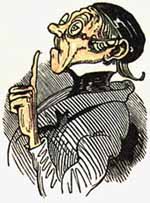 Our
conventional schools were originally based on the imperial Prussian
model of schools designed to turn out docile, easy to govern, and efficient
subjects and workers for absolutist monarchs and industrial oligarchs.
The main focus was on discipline, obedience, tolerance for mind numbing
repetitive tasks, and the ability to read, write, and follow simple
instructions and perform calculations by hand in an age before pocket
calculators and computers. Having watched entire nations obediently
march into the horrendous carnage of World War I, AS Neill of Summerhill,
England, in the 1920's lit the path toward Democratic Education; and
in the 1960's Sudbury Valley School added further dimensions of freedom
and democratic structure with equal courage and an American touch. For
a while, Democratic Education schools sprang up in many places, but
on the whole these brave advances were largely ignored by mainstream
schools. When Standards Based Education eventually swept through them
like a black plague, things took a turn from bad to worse. Our
conventional schools were originally based on the imperial Prussian
model of schools designed to turn out docile, easy to govern, and efficient
subjects and workers for absolutist monarchs and industrial oligarchs.
The main focus was on discipline, obedience, tolerance for mind numbing
repetitive tasks, and the ability to read, write, and follow simple
instructions and perform calculations by hand in an age before pocket
calculators and computers. Having watched entire nations obediently
march into the horrendous carnage of World War I, AS Neill of Summerhill,
England, in the 1920's lit the path toward Democratic Education; and
in the 1960's Sudbury Valley School added further dimensions of freedom
and democratic structure with equal courage and an American touch. For
a while, Democratic Education schools sprang up in many places, but
on the whole these brave advances were largely ignored by mainstream
schools. When Standards Based Education eventually swept through them
like a black plague, things took a turn from bad to worse.
Our conventional schools have not only stuck with the traditional wrongheaded
educational philosophy with which many of us grew up (so that we are
accustomed to it and confuse it with learning), but - for many decades
now - they have gone down a path of self destruction: the standards
based, test driven pedagogy I described, and which many educators deplore.
These reforms have taken a flawed system and made it a lot worse by
simply adding more of the same old mess and turning up the heat. I don't
believe that more of the same makes any sense when it only perpetuates
and exacerbates old mistakes. Therefore, instead of merely asking that
we return to the less eroded schooling in which my generation grew up,
I favor a fundamental shift of focus towards student-directed
learning for individual growth and true understanding
(rather than for the memorizing of meaningless fluff, the avoidance
of demoralizing value labels, and the amassing of highly questionable
credits) and education for democracy and
critical thinking (instead of submission and gullibility).
This shift would bring much better result, and is simply the right thing
to do. In fact, when you add up what I am arguing for (human dignity,
self determination, fairness to all, the freedom to live your own life
and become the best you that you can be and do what makes sense);
we are simply looking at the ideals of the enlightenment on which this
country and other modern nations were founded and which we often take
for granted as our - adult - human and civil rights. Why should
our children, even as they inch ever closer to adulthood, have none
of this? We tend to think that these principles are absolutely necessary
for running a democratic society and for realizing ourselves as individuals.
Why should it be any different for our sons and daughters? I therefore
sometimes call this kind of education enlightened
education.
4. Future Outlook
I will keep promoting education based on student
choice. This approach may seem like a fad from the sixties to
the misinformed, but the reality is that the drive for standards, statistics,
and credits of the last three or so decades has prevented true reform
at great cost to us all, a fact of which more and more people are becoming
painfully aware. Also, student directed learning merges perfectly
with the new electronic and Internet based educational technologies
which hold tremendous potential. Thus it is the road to the
future.
Things I can do in a conventional school:
Options are very limited in conventional schools. To their classes,
I bring a high subject knowledge, a genuine respect for my students,
and a healthy dose of humor. In this setting, I have found that classes
of high achieving students often have a blast with me in a rich collegial
atmosphere. When I am tasked to play a mix between prison warden and
drill sergeant for low achieving students, however, things admittedly
can go less well since those students are rebelling against a system
I myself find flawed, and I am simply not the dictatorial type. My best
subject to teach in conventional settings is beyond doubt German, because
I can bring in my entire personality, humor, and enthusiasm to fire
up my captive audience of students. The brain research of recent years
confirms what many visionaries told us all along: that we learn a great
deal better and solve problems much more creatively when we are enthusiastic
and having fun. In a class like this, even the conventional school model
becomes bearable, reducing "classroom management" issues to
a minimum.
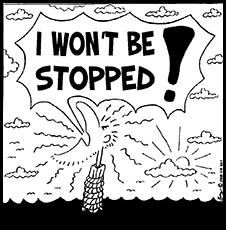 Reflections
on things I (and you) could do in a free school environment (a democratic
school): Much depends on the amount of freedom and the range
of required tasks. I like the Sudbury approach the best. Obviously,
keeping such a school running operationally, and modeling or explaining
the Sudbury philosophy of freedom coupled with responsibility comes
first. Staff often has to do things like office work and attend
the School Meeting or Judicial Committee even if not all students do.
So, I would probably find myself doing a lot of that much like other
staff. As I am handy with computers, office work might be a common use
of me. I may also be able to contribute in a mentoring function to students
who wish to draw on my life experience in many careers and on three
continents. In a more free-flow private school I once worked, many students
regularly sought me out to get feedback on their music, IT, or science
quests, for example, or to mediate conflicts. My prior experience and
current skill set might let me be useful to the school's publications
and information technology. As for teaching in schools where elective
courses are offered, I could see myself going as far as setting up a
research lab where students who profess an interest could join in doing
actual scientific research discovering scientific methodology for themselves
by doing science, rather than merely learn (and then forget)
about the so-called "scientific method" through
hasty cookbook labs, abstract doctrines, and anemic worksheets, the
way things go in conventional schools. Potentially, the work could reach
publication worthiness and actually be published to the science community
with students listed as authors. I could see myself running miscellaneous
seminars about life science and science ethics and an intense biology
course for any students who want a thorough overview of this academic
subject and a college-like experience. This course would resemble a
college study group or a graduate school seminar more than a high school
course as it would be based on self study mixed with group level brainstorming
and discussion as well as use of multimedia, hands-on, and Internet
technology. Students who actually want courses (or have a need to take
them) would be very well served, and passing state biology tests after
this would be a snap. Those who then wanted to take and pass the College
Board's AP Biology test, I could confidently coach for that, too. For
the more casually interested, I could arrange for joint viewings of
science documentaries, TED Talks and the like to be watched and discussed
together. As a native speaker of German and someone fairly fluent in
Spanish, I could assist anyone interested with the learning of those
languages. In fact, at the moment I would suggest self study with the
excellent and free service duolingo.com especially for the basics,
possibly followed later by reading captivating reads to reach high mastery
— all along supported by me as desired by students, an approach
I have already tried and which in my opinion works much, much better
than traditional foreign language classes (it's a lot more fun and learning
goes a lot faster, too). Additionally, I might be able to help in other
things like learning programming and software design, vivaria, professional
translation, writing, cartooning, and music. More possibilities would
surely come up in an environment of spontaneous and elective rather
than curriculum-mandated learning. Reflections
on things I (and you) could do in a free school environment (a democratic
school): Much depends on the amount of freedom and the range
of required tasks. I like the Sudbury approach the best. Obviously,
keeping such a school running operationally, and modeling or explaining
the Sudbury philosophy of freedom coupled with responsibility comes
first. Staff often has to do things like office work and attend
the School Meeting or Judicial Committee even if not all students do.
So, I would probably find myself doing a lot of that much like other
staff. As I am handy with computers, office work might be a common use
of me. I may also be able to contribute in a mentoring function to students
who wish to draw on my life experience in many careers and on three
continents. In a more free-flow private school I once worked, many students
regularly sought me out to get feedback on their music, IT, or science
quests, for example, or to mediate conflicts. My prior experience and
current skill set might let me be useful to the school's publications
and information technology. As for teaching in schools where elective
courses are offered, I could see myself going as far as setting up a
research lab where students who profess an interest could join in doing
actual scientific research discovering scientific methodology for themselves
by doing science, rather than merely learn (and then forget)
about the so-called "scientific method" through
hasty cookbook labs, abstract doctrines, and anemic worksheets, the
way things go in conventional schools. Potentially, the work could reach
publication worthiness and actually be published to the science community
with students listed as authors. I could see myself running miscellaneous
seminars about life science and science ethics and an intense biology
course for any students who want a thorough overview of this academic
subject and a college-like experience. This course would resemble a
college study group or a graduate school seminar more than a high school
course as it would be based on self study mixed with group level brainstorming
and discussion as well as use of multimedia, hands-on, and Internet
technology. Students who actually want courses (or have a need to take
them) would be very well served, and passing state biology tests after
this would be a snap. Those who then wanted to take and pass the College
Board's AP Biology test, I could confidently coach for that, too. For
the more casually interested, I could arrange for joint viewings of
science documentaries, TED Talks and the like to be watched and discussed
together. As a native speaker of German and someone fairly fluent in
Spanish, I could assist anyone interested with the learning of those
languages. In fact, at the moment I would suggest self study with the
excellent and free service duolingo.com especially for the basics,
possibly followed later by reading captivating reads to reach high mastery
— all along supported by me as desired by students, an approach
I have already tried and which in my opinion works much, much better
than traditional foreign language classes (it's a lot more fun and learning
goes a lot faster, too). Additionally, I might be able to help in other
things like learning programming and software design, vivaria, professional
translation, writing, cartooning, and music. More possibilities would
surely come up in an environment of spontaneous and elective rather
than curriculum-mandated learning.
|
Courses, yes or no?
Courses can get in the way of learning and in conventional
schools usually do. Some Student Choice schools stay away
from courses almost entirely (Sudbury) while others employ them
to various degrees. Ideally, any courses taught should be voluntary
electives leaving time for other learning to take on a more organic
form. Also, the rapid development of distance learning courses
may soon make traditional school offerings obsolete.
In a school setting where staff is employed to offer or "run"
courses, I might offer the below:
1. Traditional School Courses:
- German, Biology, some other science and math, and possibly
ESL
2. Less Traditional Electives:
- International Culture: How are "they" the same or
different from us? (seminar)
- Science Seminar: Reading and discussing
science news. (seminar)
- Ethics in Science and Technology (course/seminar)
- Readings in Biology ("study group" which practices
academic reading, self study, and group study)
- AP/GRE Biology Prep (done as mentoring or study group - prerequisite:
Readings in Biology or equivalent prior learning)
- Scientific Research in Biology (lab - actual research, not
demos or cookbook labs)
- "Sikuri" Marching Band
3. Clubs and Unconventional "Courses" (the most fun
and probably among the most beneficial):
- Documentary Viewings: Viewing and discussing
great documentaries like those found on Nova and Discovery channels
and Internet video repositories, including classic documentary
series like Carl Sagan's Cosmos, David Attenborough's Planet
Earth, The Private Life of Plants, and others, as well as anything
else suggested by others.
- Basic German & Spanish Language:
Computerized study with instant feedback and social media features
makes learning a foreign language much less tedious than it
used to be.
- Advanced German & Spanish Language
- Conversation, and Media: For advanced German learners. Together
with reading of enjoyable books, this is the ideal preparation
for goals like AP exams or future life or studies in foreign
countries.
- Ecoquarium: Setting up an ecological aquarium for observing
ecology & life cycles happening before your eyes.
- RPG club: Learning social skills and breaking through the
walls of one's personal life by trying on other people's lives,
experiencing things like professional success, aging, and even
retirement through simulation.
- IT club: Fixing, setting up, and maintaining computers, peripherals,
and networks, including the school's equipment.
|
In conclusion, what I find has been lacking
in my public school jobs, to date, is much of the freedom needed
to be the useful resource I can be for young people after having
lived in many careers, avocations, and countries which taught me a great
deal beyond the lessons from many years of schooling. Students with
a variety of interests can lean on those who walked a similar path before
them to plot their very own unique path, but rigid curricula and absurd
testing schemes prevent this in most schools, much as their authoritarian
governance stunts much human growth. I can only hope that the failed
school reforms of the past become supplanted by a much needed, fundamental
change in approach, and that in the meantime courageous administrators
and truly alternative schools dare to let enlightened teachers try the
road less traveled. Pioneers in democratic education like Summerhill
and Sudbury Valley, and to some extent holistic schools like Waldorf
and Montessori and uncommonly student friendly public school systems
like that in Finland, point into a better direction than No Child Left
Behind, Common Core, and similar approaches which focus on the wrong
parameters so that, in spite of their promising names and purported
goals, they actually leave most children behind: behind and broken,
resigned or rebellious, and drained of their internal motivation. If
you are a parent, you should check out the alternatives. By doing so,
you may find a great independent school or even a revolutionary public
school program near you. If not, you might start one yourself or join
a startup initiative. At the very least, from such research, your relationship
with your children and their teachers could become more supportive.
I myself, for now, continue to do the best I can for my students in
either public or private schools.
~ Dirk Bayer
|
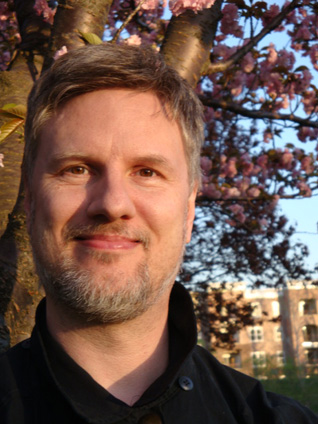 Hello,
and welcome to my Democratic Teacher page. Several years ago, I
became a Maryland certified teacher of German and Biology and got an up
close view of how conventional schools function today. I believe we will
need to shift to a democratic model of school operations to better match
the democratic world in which we wish to live. To this extent I have written
blogs and may write a book. I have worked in schools and tutoring, facilitated
distance learning, and could also provide home schooling support.
Hello,
and welcome to my Democratic Teacher page. Several years ago, I
became a Maryland certified teacher of German and Biology and got an up
close view of how conventional schools function today. I believe we will
need to shift to a democratic model of school operations to better match
the democratic world in which we wish to live. To this extent I have written
blogs and may write a book. I have worked in schools and tutoring, facilitated
distance learning, and could also provide home schooling support.